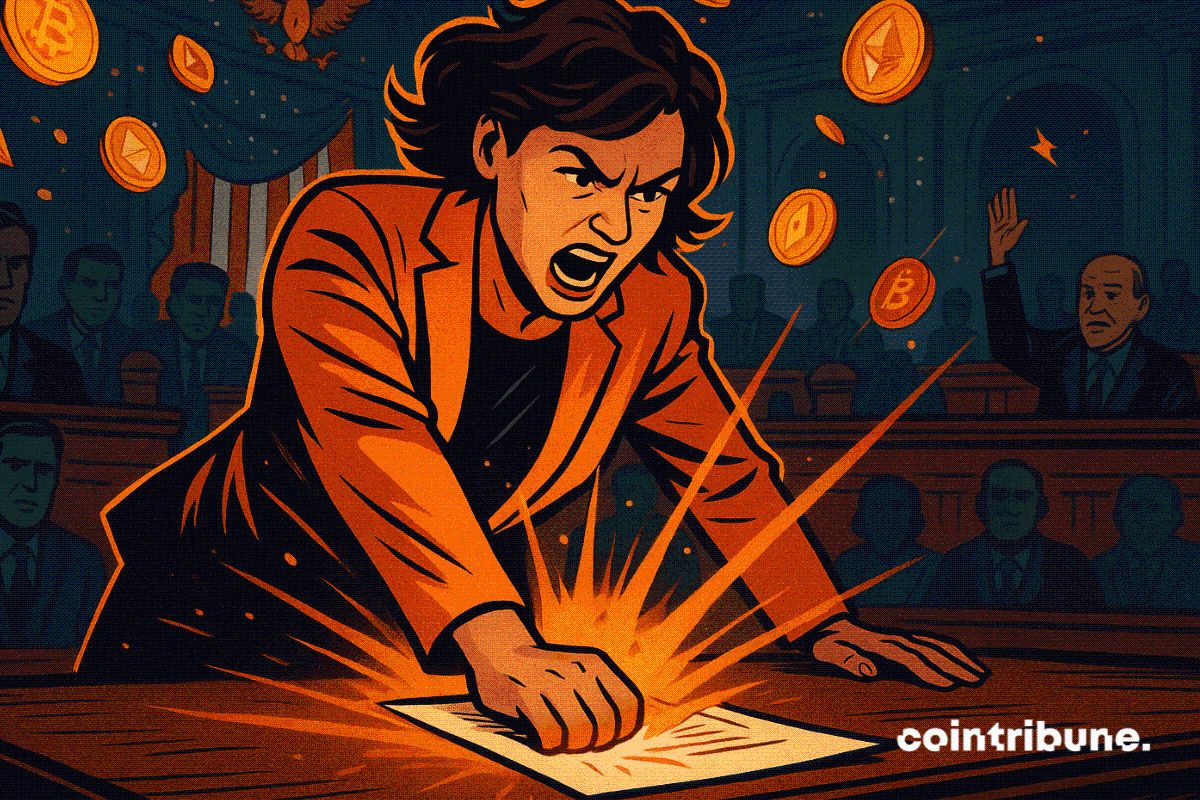Senator's Financial Troubles Highlight West Virginia's Ongoing Economic Challenges
- Senator Jim Justice faces financial scrutiny as tax liens, debts, and legal battles threaten his business empire, with IRS filing $8M in liens for unpaid personal taxes since 2009. - State officials imposed $1.4M liens on Justice's Greenbrier properties for unpaid sales taxes, while courts review disputes over property foreclosures and corporate governance. - Legal precedents limit creditors' asset seizure power, as an 8th Circuit ruling restricted IRS authority to tax foreign subsidiary royalties, compl
Senator Jim Justice, who has served two terms as West Virginia’s Republican governor and is now a U.S. senator, is under increasing financial pressure as tax liens, unpaid bills, and lawsuits put his vast business holdings at risk. Once considered a billionaire, Justice’s reported net worth has dropped below zero, and since taking office in the Senate earlier this year, his financial troubles have escalated, with creditors and state authorities stepping up their efforts to recover millions owed, according to a
The Internal Revenue Service (IRS) placed tax liens exceeding $8 million against Justice and his wife, Cathy, on October 2, citing unpaid personal taxes dating back to 2009. Politico first revealed these liens, which include interest and penalties, though the specific causes for the overdue taxes were not disclosed. This is not the first time the IRS has targeted Justice’s businesses; in 2021, the agency filed a $1.1 million lien against The Greenbrier Hotel for unpaid taxes, which was later resolved, as reported by

Justice’s money problems go beyond federal tax issues. State officials have recently filed $1.4 million in liens against The Greenbrier and its related sporting club for unpaid sales taxes. A scheduled foreclosure auction for hundreds of Justice’s properties in Beckley was put on hold due to disagreements over unpaid fees, with the West Virginia Supreme Court now set to consider the matter, as outlined in the Fortune report. Meanwhile, the state’s Democratic Party has accused Justice of “financial mismanagement,” referencing previous lapses in employee health insurance payments and environmental penalties linked to his coal businesses, also mentioned in the Fortune report.
Court decisions could further complicate efforts to collect from Justice. In a separate matter, the 8th U.S. Circuit Court of Appeals recently decided that the IRS cannot tax a parent company on royalties that a foreign subsidiary is legally unable to pay, highlighting limits on the agency’s power to reassign income, according to an
The economic difficulties facing West Virginia echo Justice’s own financial struggles. The state, which has one of the highest poverty rates in the country and has experienced a shrinking population for over a decade, has lost congressional seats. Justice, who purchased The Greenbrier resort for $20.1 million in 2009, has been criticized for putting his business interests ahead of his public duties, with his time as governor marked by frequent legal battles and few legislative successes, according to an
As courts and creditors work through the complex network of Justice’s debts, it remains unclear whether the senator can overcome these challenges. With several lawsuits, liens, and a public campaign highlighting his children’s management abilities, Justice’s situation illustrates the complicated relationship between personal finances, political influence, and legal maneuvering in a state still facing significant economic hardship.
Disclaimer: The content of this article solely reflects the author's opinion and does not represent the platform in any capacity. This article is not intended to serve as a reference for making investment decisions.
You may also like
DASH Experiences Rapid Price Increase at the End of 2025: Implications of Institutional Entry for Long-Term Cryptocurrency Investment
- DASH cryptocurrency surged 485% in 2025, driven by institutional investments and technological upgrades. - Institutional ownership reached 90.64%, fueled by AGF Management’s $7.79M investment and Dash Platform 2.0’s enhanced scalability. - DASH’s real-world adoption in emerging markets contrasts with DoorDash stock’s speculative valuation, highlighting crypto’s growing institutional legitimacy.

Zcash's Scheduled Halving in November 2025 and Its Potential Impact on the Market: An Analysis Focused on Supply Constraints
- Zcash’s 2025 halving reduced block rewards by 50%, capping supply at 21M ZEC and aligning with Bitcoin’s deflationary model. - ZIP 1015 lockbox diverted 12% of rewards to a community-controlled wallet, cutting daily liquidity by $337K. - ZEC surged 845% post-halving but later dropped 96%, while Grayscale’s $151.6M trust now holds 5% of supply. - EU’s MiCA framework pressures Zcash to balance privacy with transparency, risking core value proposition. - Upcoming 2028 halving will further cut rewards, reinf

Fed Cuts Rates Again Amid Growing Internal Division

The CFTC Opens a Breach: Will Crypto Win the Market War?
